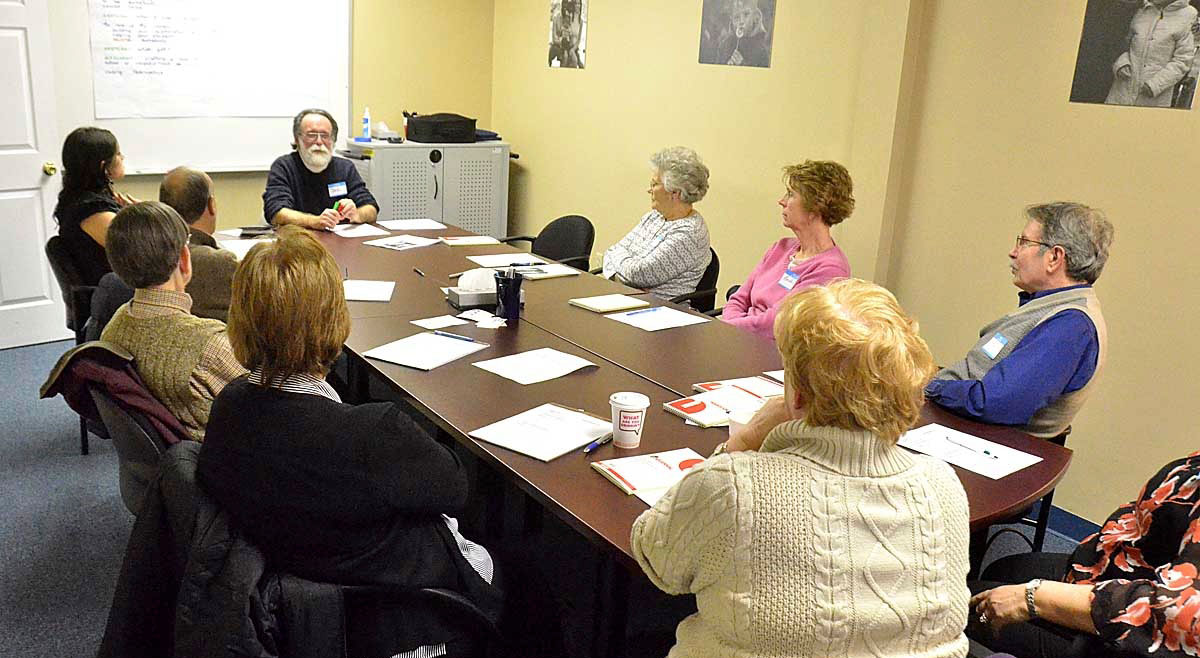Overview
The Social Role Valorization Implementation Project (SRVIP) is a human service training, evaluation and consultation effort aimed at addressing the social devaluation of impaired and other vulnerable people in contemporary society. Social Role Valorization (SRV), as articulated by Wolf Wolfensberger, PhD, is our theoretical base. For more information about SRV please read “An Overview of Social Role Valorization Theory.”

Social Role Valorization, when well applied, has potential to help societally devalued people to gain greater access to the good things of life and to be spared at least some of the negative effects of social devaluation. This is one of the reasons why it is important for people to learn to teach SRV, so that its ideas and strategies are known and available to the right people in the right places who can apply it well. Such training is part of our mission. Dr. W. Wolfensberger and the North American SRV Safeguarding, Training & Development Council have developed a specific model for teaching people to competently do two things: (a) teach Social Role Valorization; and (b) teach other people to teach SRV. People who can do the former, the SRV Council calls “SRV trainers.” Those who can do the latter, the Council calls “trainers-of-trainers” of SRV. The Council named this a “Trainer Formation Model,” i.e., a model for forming or developing SRV trainers and trainers-of-SRV trainers. A description of the Trainer Formation Model is available here.
To find out more about studying SRV and learning to teach it, please contact Jo Massarelli at The SRV Implementation Project, 74 Elm Street, Worcester, MA 01609 USA; 508.752.3670; jo@srvip.org. She will be able to help you or to put you in touch with someone more local to your geographic area who can be of help.
The SRVIP started in 1989 under the Institute of Leadership and Community Development, directed by Michael Kendrick, PhD. Since that time we have offered workshops from one half day to five full days in duration, to thousands of human service workers, families and advocates across the United States and in Canada, Australia and New Zealand. Our policy is to illuminate issues that deeply affect the lives of societally devalued people but are not taught adequately (or possibly at all) elsewhere. A current example is that despite myriad training courses in home care service administration and management, few or none deal with what people who use such services say is the central issue: seeking to maintain the integrity and sanctity of home and home life while also having human service workers present. Hence, our one day workshop called Strangers in the House, the Dilemma of Living with In-Home Service. For a complete listing of SRVIP training events and topics please see our workshops section.
In addition to teaching workshops, we have expanded our education program to include offering retreats for human service agencies and advocacy groups, and maintaining a library on human service issues where people are welcome to come and study. We are also involved in evaluating and designing both formal paid services as well as unpaid helping forms for people with mental and physical impairments. These efforts have ranged from consultation with human service agencies and funders to “kitchen table” planning sessions in people’s homes.
Our Mission
Inspired by Dr. W. Wolfensberger of the Training Institute for Human Service Planning, Leadership & Change Agentry at Syracuse University, the mission of the SRVIP is to:
- address social devaluation in all its forms, including those forms which threaten the lives of vulnerable people,
- support positive action consistent with Social Role Valorization theory,
- promote the work of Dr. Wolf Wolfensberger.